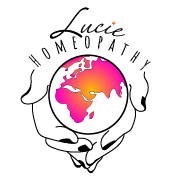HOW DO WE BECOME ILL?
DISEASE FROM A HOLISTIC POINT OF VIEW
The healthy body isn’t reminded of its parts, which means when we are in a relatively good health, our Life Force is balancing and adjusting the organism without the person even knowing or having to focus awareness on its action.
The homeostasis within us is happening constantly and our body reacts to stress or morbific stimuli by producing the best possible response of which it is capable at the time.
When the stress (=stimulus) is too powerful and if our susceptibility (weakness) ‘matches’ this stimulus, our being becomes mistuned and the defence mechanism is called into action (=> produces symptoms).
‘Symptoms and signs are the only way we have of perceiving the workings of the defence mechanism. It is acting in the best possible manner for the benefit of the organism; for this reason, the symptoms and signs produced are actually attempts on the part of organism to heal itself.’ G. Vithoulkas, Science of homeopathy, p.91
The more we suppress our symptoms, the more confused and ‘lazy’ our immune system becomes. We become chronically ill when our body can’t recover fully on its own. This can be due to many various reasons, not just suppression (but very often it is part of it), as well as our inherent predisposition to illness, environmental factors and lifestyle (diet, exercise, etc.).
Suppression is an interesting factor in chronic disease, which many of us are not even aware of. For example, the use of steroid creams on eczema in childhood can later in life develop into asthma (the pathology goes from the skin deeper into the body – lungs), or mental and emotional suppression which can later in life manifest in physical dis-ease (or mental illness).
Susceptibility is, in very simple terms, our weakness to a disease, which can be inherited from our ancestors as well as acquired throughout our lifetime.
Dr. S. Hahnemann describes it in his Organon, aph. 31:
‘…we become diseased only when our organism is just exactly and sufficiently disposed and laid open to be assailed by the cause of disease that is present, and to be altered in its condition, mistuned and displaced into abnormal feelings and functions. Hence these inimical potencies do not make everyone sick every time.’
He goes on to explain further what diseases are and are not….’they are not mechanical or chemical alterations of the material substance of the organism; they are not dependent on material disease matter. They are solely spirit-like, dynamic mistunements of life.’
There is a great example of susceptibility, an experiment by German scientist Pettenkofer, who wanted to disprove Robert Koch’s claims that bacteria causes illness.
He swallowed a live culture of cholera bacilli and remained totally unaffected and well.
‘…one’s susceptibility to illness is determined by the ways in which our emotions, thoughts and growth crises effects out biological field… illness is brought about when our capacities to ward them off or integrate them is inadequate to the situation…when on the other hand, the new elements are warded off (like in the experiment by Pettenkofer above), we speak of immunity…’ E.C. Whitmont, Psyche and Substance (p.67-68).
This is not to say that the bacteria or virus isn’t one to cause the illness, but to say that without the susceptibility of the individual, this bacteria or virus will unlikely cause any harm.
We have all kinds of bacteria in our bodies at all times, we breathe air that has pollution in it and drink water that might contain harmful substances, yet we live on. So it is not so much about killing the bacteria, but about bringing the individual to its full potential of health so the bacteria cannot thrive in the organism.
Same disease will be experienced differently in every one person. This is where homeopathy excels because it appreciates the uniqueness of the expression of disease in every person and treats it accordingly by finding the homeopathic remedy that fits the person’s picture the best.
So how do we make sure that we are NOT susceptible to that virus or disease?
Prevention is the best cure….so I would encourage eating best quality foods (organic where possible), plenty of veg and fruit on daily basis, stay away from junk/processed food, limit alcohol, make sure you have plenty of exercise, fresh air and not much stress. Have some raw foods in your diet (ideally 50% at least) – great way around this is making raw juices – brilliant way to get lots of vitamins and minerals into your body (without having to eat such amount).
It is all very much a common sense and perhaps bit of a cliché, but we go back to it again and again, despite all the new diet fads.
Basic and common sense is often the best and easiest way forward.
We are what we eat and so what you put in your body is not just your responsibility but also a tool to counteract any possible negative hereditary traits.
For example, having cardiac issues running in the family – you are probably best to stay away from fatty foods and meat as those can cause high cholesterol and clogging of arteries.
WHAT CAN BE TREATED WITH HOMEOPATHY?
Because homeopathy looks at individual symptoms, the limit of what it can treat is unbound.
Anything from colic, teething problems or eczema in babies, recurrent middle ear infection in toddlers, behavioural issues (ADHD, Autism spectrum and similar), tonsillitis or exam nerves/apprehension in teenagers and young adults.
Asthma, UTI’s, digestive problems (IBS), sleep issues, hay fever, menstrual and hormonal issues, menopause, support in pregnancy, haemorrhoids, sinus issues, sleep issues, anxiety, depression, chronic fatigue and many more.
Homeopathic treatment is all about that one individual person – it is almost ‘irrelevant’ what the disease name is. One and the same disease may call for different medicines in different people, and going back to Law of Similars (which was mentioned in my other blog).
If you are keen to find out more how homeopathy can help you, book a free 15 mins chat with me below.

